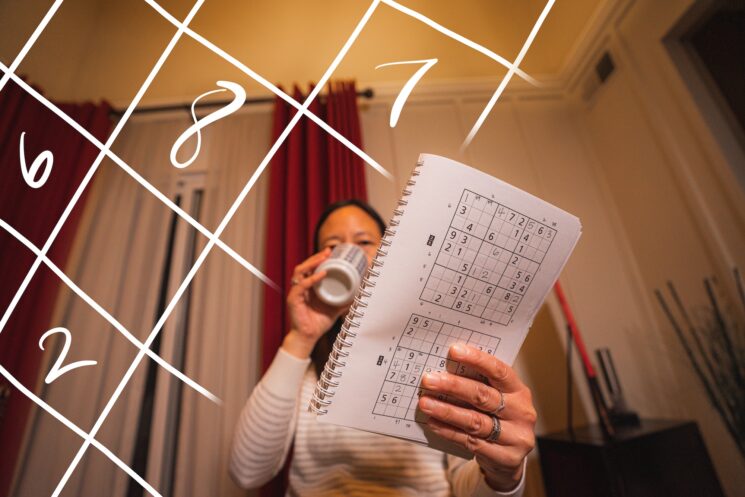
By Zander Sherry
During stressful times where the weight of school, commitments and home life can give you a hard time all at once, the unlikely solution could come in the form of puzzles.
Though unassuming at first, puzzles are a great way to be attentive. They will help you concentrate on one thing, while allowing you to let go of the stressors that surround your life. To succeed at a puzzle, you need to be in the present moment.
If this sounds familiar to you, then you’ve probably heard of mindfulness.
Mindfulness includes practices and different methods to help people release tension for the mental and physical health benefits it can offer. In addition, concentrating can be a way to help students, who notoriously have a lot on their plates every day.
“Once students continue to develop those mindfulness practices they can be more aware, pay more attention in class [and] catch themselves when their mind is telling them something crappy about themselves,” biology teacher Emily Barro said.
Like other teachers on campus, Barro incorporates mindfulness in her classroom with “Mindful Mondays” as a way to familiarize students with the benefits of mindfulness.
But what do puzzles have to do with mindfulness?
When you are engaged in the activity of a puzzle, your mind tends to stay focused on the task at hand. It’s not as confusing as a math problem, nor as painstaking as writing an essay for English, but has many aspects of mindfulness because it can bring people to the present moment.
Whether it’s a crossword you find in your school’s newspaper, a jigsaw puzzle that your grandma has been working on or sudoku, for those inclined to dealing with numbers, puzzles can come in many shapes and levels of difficulty.
The cognition required to put puzzles together can not only improve memory and focus, but allows puzzles to be a “healthy distraction” from daily stressors and trivial things that occur in the past or future.
The benefits of mindfulness can be found through things that everyone is able to do. It is not a specific lifestyle that some people will inherently be better at than others. While breathing exercises are of the more common mindful practices, it can pop up in parts of everyday life. Breathing, eating, running or exercising and yes, puzzles, can all incorporate mindfulness in some way or another.
However, many teenagers don’t have the best ability to focus on one thing at a time, and that isn’t necessarily their fault.
Focusing on one thing is extremely difficult in an era where visual or auditory input can come extremely fast through the use of social media. With platforms such as Tiktok and Instagram, people are effectively able to distract themselves with constantly changing forms of media, without being able to fully process things.
The prevalence of readily available dopamine hits has the ability to put our mind in multiple unhealthy places. This is all the more reason why simple activities like puzzles are a better pastime than scrolling through your feed. The type of distraction that comes from mindfulness serves to benefit memory retention and cognition, rather than harm them.
Still, some overworked students or adults would argue that mindful practices or puzzles don’t have a “productive” aspect to them, and can therefore be seen as a waste of time.
It’s true, many people won’t have a lot of free time on their hands and will try to prioritize the most productive and efficient things to do. Solving puzzles simply doesn’t land very high up on the to-do list, and it could even bring up a fear of wasting time.
However, while losing track of time with something like a puzzle may seem like a stressful addition to your routine, a lot of the value of mindfulness comes from the ways it can help us with the very issue of dealing with multiple things at once.
“There’s always this overwhelming list of things for us to do,” Barro said. “Whether it’s a student or a teacher… it’s almost impossible to finish.”
We won’t all be experts at managing every one of our tasks, so mindfulness can help students or anyone in interrupting a negative thought loop. Mindfulness can help us take things one at a time so that we perform better and are not flooded with overwhelming tasks all at once.
If you don’t have an inclination for guided meditation, or you don’t have a stress-relieving hobby at your disposal, simple puzzles are things that anyone can do to get their mind off of things in a healthy way.
In your free time or in between homework breaks, instead of picking up your phone, take on the opportunity to solve some puzzles! With deliberate focus, you will see just how present your mind can be.





